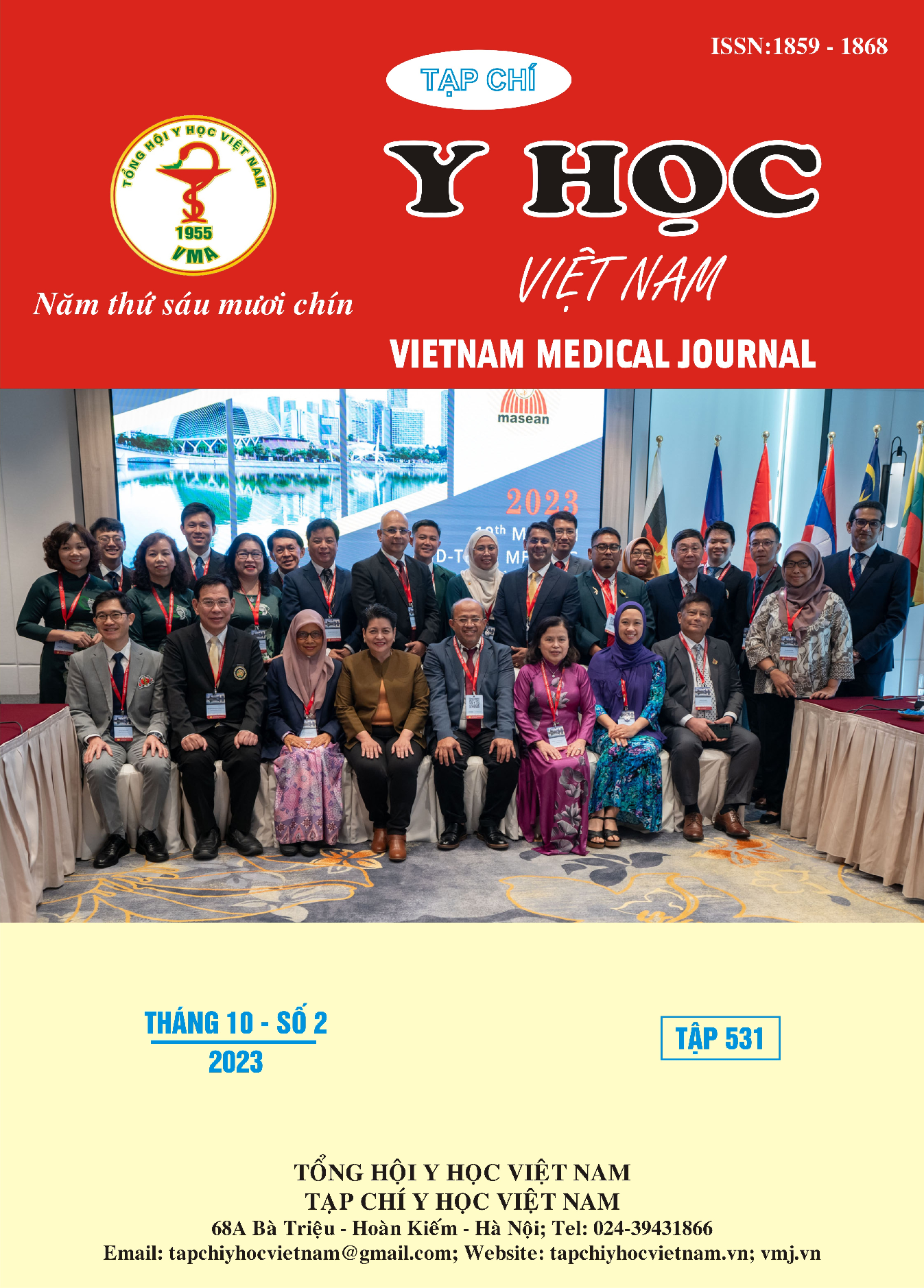FACTORS AFFECTING THE PARTICIPATION OF THE METROPOLITAN POPULATION OF HO CHI MINH CITY IN CLINICAL TRIALS: EVIDENCE BASED ON ATTITUDES AND BARRIERS
Main Article Content
Abstract
Background: Clinical trials (CTs) are conducted on humans to evaluate the safety, clinical efficacy, pharmacological effects, pharmacodynamics, and pharmacokinetics of drugs, vaccines, and medical biological products. Objective: This study was aimed at assessing attitudes toward and barriers to participation in CTs among the population of Ho Chi Minh City (HCMc). Methods: A descriptive cross-sectional study was conducted in February 2022 to distribute a questionnaire developed on the basis of previous research. Items were scored on a five-point Likert scale ranging from 1 (“strongly disagree”) to 5 (“strongly agree”). The collected data were described and analyzed using the Statistical Package for the Social Sciences (version 22.0). Results: There were 581 valid participants, whose overall scores on attitudes and barriers were 72.8 ± 13.9 and 58.6 ± 14.6, respectively. The respondents showed the highest attitudinal score with respect to the item “participation in clinical trials helps develop new medication” (Percentage Mean Score - PMS = 79.2) and the highest barrier-related score with regard to the item “I am afraid of the risks (safety) of participation in clinical trials” (PMS = 73.0). Health status, chronic disease status, and doctor recommendation to join CTs influenced the participants’ attitude-related scores, whereas gender, age, education level, marital status, children, and doctor recommendation to join CTs affected their barrier-related scores. Conclusion: HCMc citizens have positive attitudes toward CTs but encounter above-average barriers to such participation. Assessing public attitudes toward and barriers to participating in CTs helps acquire the data and information necessary to design suitable CT models for the Vietnamese population.
Article Details
Keywords
attitudes, barriers, clinical trials, Ho Chi Minh City, willingness to participate.
References
2. Novitzke , M J. (2008), "The significance of clinical trials", Journal of vascular and interventional neurology, 1(1), p. 31.
3. Nipp R. D., Hong K. , Paskett E. D. (2019), "Overcoming barriers to clinical trial enrollment", American Society of Clinical Oncology Educational Book, 39, pp. 105-114.
4. Choi Y. J., Beck S.-H., Kang W. Y. et al. (2016), "Knowledge and perception about clinical research shapes behavior: face to face survey in Korean General public", Journal of Korean medical science, 31(5), pp. 674-681.
5. Awwad O., Maaiah S. , Almomani B. A. (2021), "Clinical trials: Predictors of knowledge and attitudes towards participation", International Journal of Clinical Practice, 75(3), p. e13687.
6. Bank T. W. (1990), GDP per capita, PPP (current international $), The Word Bank, truy cập ngày 01/12/2021, từ trang web https:// data. worldbank.org/indicator/NY.GDP.PCAP.PP.CD.
7. Al-Tannir M. A., El-Bakri N. , Abu-Shaheen A. K. (2016), "Knowledge, attitudes and perceptions of Saudis towards participating in clinical trials", PLoS One, 11(2), p. e0143893.
8. Al-Jumah M., Abolfotouh M., Alabdulkareem I. et al. (2011), "Public attitude towards biomedical research at outpatient clinics of King Abdulaziz Medical City, Riyadh, Saudi Arabia", EMHJ, 17(6), pp. 536-545.
9. Almutairi A. F., Almutairi B. M., Alturki A. S. et al. (2019), "Public motives and willingness to participate in first-in-human clinical trials in Saudi Arabia: A new era in the making", Journal of infection and public health, 12(5), pp. 673-680.


